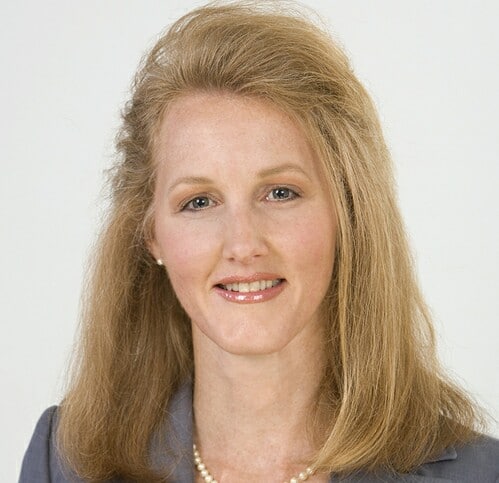by Phoebe Atkinson
In January, the fourth Certificate in Positive Psychology (CiPP) class arrived at Kripalu for the final immersion week. After living for months in the virtual component of this blended-learning course, the entire community was reunited—standing face to face in a circle of students, teaching assistants, and faculty. The positive contagion kindled by excitement, joy, interest, love, gratitude, and enthusiasm rippled throughout the room. There was a palpable feeling of anticipation as the group considered the week’s focus of “serving it forward.”
More circles convened throughout the week as the students deployed their strengths and courageously delivered a variety of uniquely conceived final projects, stimulating rich dialogue. Inspired and uplifted, they mapped out their next steps and discussed the tools they would need to empower themselves as they took action to serve a larger movement.
Sonya Lyubormirsky writes, “The self is embedded in a network of social relationships.” Throughout the week, a sea of faces of CiPP generations resonated within me, and I thought of the living network of CiPP—my classmates, the different study groups, and the teams of teaching assistants who had dedicated themselves to watering the seeds of greatness in their students.
Approaching Awe
After the immersion, I returned home gratified, exhausted, and filled with pride. I knew about “upward spirals” and “positive contagion”, I was familiar with Barbara Fredrickson’s work on inspiration and gratitude—yet, as I debriefed and shared what had happened for me at the immersion, I continued to search for words to describe my experience. I knew I was somewhere in the terrain of what Tal Ben-Shahar had described as Post Peak Experience Order.
What could I call these uplifting feelings that had been activated within me in the presence of so much good intention and virtue? Awe? Wonder? Elevation? I turned to the work of Jonathan Haidt and his research with Sara B. Algoe on elevation, which they describe as the emotional response a person has when witnessing human goodness. The “elevation effect” inspires us to action and triggers a desire to rise up and become a better person.
Another study, by Haidt and Dacher Keltner, describe two features of awe that distinguish this emotion from others: vastness and accommodation. Vastness refers to “anything that is experienced as being much larger than the self”; accommodation refers to the need to adjust one’s mental structure in order to assimilate a new experience. Vastness was an accurate word, as I considered the many micro moments of creativity and connection I had witness and experienced. Accommodation gave me language to understand why I had been struggling to find the words. I was still opening up new files in my mind and body as I attempted to assimilate what I had experienced and expand into the new.
UC Irvine researcher Paul Piff says there is a viral component to awe. “When people experience awe, they really want to share that experience with other people,” he says. Fredrickson puts it this way in her book Positivity: “As this cycle continues, you and others are inspired to act on your good feelings further and repeatedly, turning them into additional good deeds. In this way, positivity can change whole communities.”
Witnessing Excellence
“Witnessing and interacting with excellent individuals can create opportunities for enrichment of the self and society,” writes Haidt. Over the past five years, I have served in a variety of leadership roles within CiPP, which has given me a big-picture view. I have had the privilege of working with wonderful colleagues on the faculty of CiPP, have walked with students through the CiPP journey as a teaching assistant, and have mentored teams of teaching assistants. I have witnessed the arc of resilience as evidenced by singular individuals as they faced challenges during the 11-month course, and I have seen the positive paths people have taken, impacting their own lives and many others’. I have stood in awe as I listened to incredible stories of resilience, as well as stories of steady, incremental growth from day to day. I have seen solid relationships built among CiPPsters who share the desire to spread positive change and contribute to the greater good.
Fredrickson says positive emotions are the tiny engines of positive psychology that color our everyday lives. She notes that awe is closely related to inspiration, “happens when you come across goodness on a grand scale,” and “can stop you in your tracks as you literally feel overwhelmed by greatness.” Awe, she says “compels us to see ourselves as part of something much larger.” As I work to incorporate my insights and experiences at the CiPP immersion, I recognize the powerful effect of positivity within me, and I feel its effect woven throughout the complex CiPP tapestry of which I am a part.
Phoebe Atkinson is the teaching assistant mentor for CiPP United States. She is a licensed clinical social worker (LCSW-R) and a board-certified trainer, educator and practitioner in psychodrama, sociometry and group psychotherapy (TEP). She is a practicing therapist in New York City and a graduate of the inaugural CiPP1 program. Phoebe’s areas of expertise include design and facilitation of clinical and corporate training programs, and she enjoys both the co-creation and collaboration. As a certified coach, Phoebe delivers executive leadership programs in Fortune 500 companies and, for the past 13 years, has co-facilitated a signature program that resides at Rutgers University Institute for Women’s Leadership.










